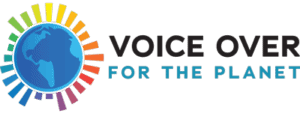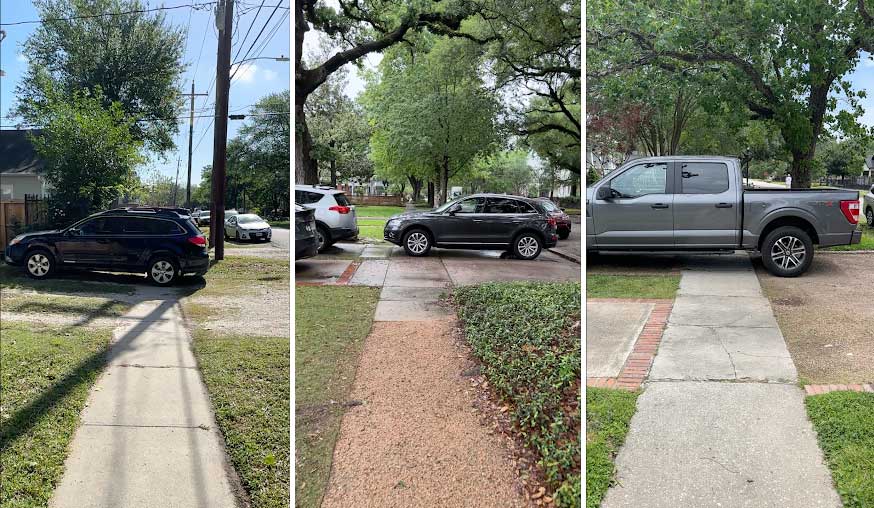by DIANA HOLGUIN
Here at Voice Over for the Planet, we work hard just like you. We’re mostly in our home offices and recording booths but every so often we venture out to a studio. You might work from home too, have a hybrid setup, or clock in at a real-life company office every workday. Whatever your situation, work is one area in life where making some eco-friendly and sustainable changes is important and totally doable. Here I’ll share with you some ways that you can do this starting today.
Let’s begin with office supplies. Who doesn’t love a well-stocked office supply closet, amiright? I’ve loved supply closets ever since I was a kid; neat stacks of boxes of pencils and staples, stacks of paper, bins of markers, paper clips, scissors, tissues, you name it. So how can we make this area a little more eco-friendly?
- If you use a printer, you can buy recycled paper, and if there is a print mistake or two or three, you can save those scraps to make little notepads instead of buying new ones. Better yet, don’t print if you don’t have to.
- Refillable ink cartridges are great too and not just for printers but also for pens! Try using a fountain pen. They may take a little getting used to but believe me, it opens you up to a whole new world of beautiful pens (and inks) that will last you a lifetime.
- Also, instead of going straight to a big chain store to buy supplies, take some time to research used office supplies (Buy Nothing Groups, Facebook Marketplace, etc). These are great if you need something random like a glue gun for a single project (I’ve personally never needed a glue gun, but you never know!). You don’t need to buy a brand new one… ask around and borrow it. Many communities have lending libraries for tools too. So, just do a bit of research first!
Now on to paper and recycling. Nowadays paper waste in offices is becoming less of a problem since so much has been digitized but when there is paper or cardboard or anything else recyclable coming out of your office or home, make sure to recycle it. It helps to get a refresher on what is recyclable or not in your area. Is it mixed recycling? Do you have to separate it? What other specific requirements are there for recycling in your area?
Let’s save some energy! One thing we mentioned in our ‘Perfectly Imperfect’ blog post a few weeks back was switching off lights. It’s often forgotten but these little habits add up.
- Think about getting a motion sensor for lights in closets or infrequently used hallways or simply get in the habit of switching lights off even if they use energy-saving bulbs.
- For electronics, purchase energy-saving versions and even refurbished ones as well… or both!
- Phantom energy is a real thing. Unplugging small appliances in your kitchen, for example, probably won’t make that much of a dent, but your computer, modem, monitor, TV, phone charger, etc. all consume a pretty considerable amount of energy even while not in use.
Now, let’s talk transportation. Whether you have to go into the office every day or not, you will at some point have to travel for work so it’s important to know your options. The fun thing about this one is trying something new that might be a lot of fun. If you have a car, I’m looking at you. Is there any way to ditch your car even from time to time?
- Public transportation – some cities have this down better than others so if you live somewhere that has a decent system then use it! It’s the best for people watching.
- Biking – lots of cities are improving their bikeability by adding designated bike lanes. If it’s safe and accessible then give it a shot. Not only are you getting from point A to point B but you’re also getting some exercise.
- Carpooling – consider asking around to see if anyone at your office would like to carpool even if only a few times a week. Think about any option to cut down on road time. If you can’t take public transportation all the way to work, then drive or carpool halfway to a station. You may save time and money by not parking so close to work.
- Walking – this one is old school, I know, but have you considered taking a stroll instead of a drive? Weather and time permitting, this is my favorite one.
I saved the best for last. Plants! This is the literal greening of your work and while it may not help save the planet, think of it as the planet saving you. Plants have so many benefits to your work environment. They are proven to improve your mood and productivity and although newer studies say plants can’t actually purify air in an indoor space, they offer the perception of better air quality which energizes and motivates. A quick web search will tell you what plants are easiest to take care of and how. And worst case, if you do not possess a green thumb and your plants don’t thrive, you can compost them and try again.
This is not an exhaustive list of office eco-hacks but a small sampler of things that can easily be implemented today. I hope you found them useful or inspirational. There are a lot of resources online that go a lot deeper into how to implement green office policies in larger offices and really make an impact on office culture in regards to helping the environment. The added benefit here is education – if someone at an office is exposed to ways they can help the planet there then maybe they’ll start taking some steps at home too. What are some of your favorite ways to make your workplace greener? We would love to hear about them.
Sources:
https://www.wework.com/ideas/research-insights/expert-insights/benefits-of-indoor-plants-in-the-office
Find out more about Diana Holguin

 Introduction
Introduction


